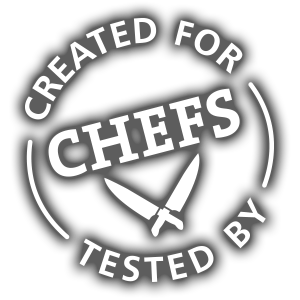Polymerization
This is the accumulation and combination of chemical by-products formed by oil oxidation reactions. You will notice this when “gummy” substances build up on your fryer. Polymerization imparts a bad flavour to your food, darkens the colour of your oil, contributes to the foaming, and ultimately deteriorates the oil. Clean and boil out fryers routinely to avoid polymerization.
Water reaction or hydrolysis
This is the reaction of the oil with moisture where the triglycerides or fat molecules are broken down. Technically, this change is expressed as the percentage of free fatty acids. The more triglyceride molecules are broken up, the more free fatty acids are present in the frying oil and the more it makes the oil unpleasant. The oil will begin to smoke and darken.
Oxidation
During the frying operation, the surface of the oil is protected by a steam layer rising from the food being fried. During slack periods, air comes in contact with the surface of the oil. The oxygen in the air reacts with the oil and speeds up its deterioration. Vigorous pouring from container to container, when filling the fryer or filtering, for example, can also over-expose your oil to oxygen.
Turnover/time
Turnover is another factor to be considered when selecting a frying solution . This is roughly defined as the amount of time that elapses till the oil in the fry kettle must be completely replaced with new oil. Oil is used up through the absorption by the fried foods. Generally, a longer replacement period of the oil in the kettle usually means higher frying oil stability.
Extractables
Fine food particles and crumbs in your oil will quickly carbonize in your fry kettle. These particles will give the oil a sharp and bitter flavour, and cause the oil to turn dark at an increased rate. Extractables are formed when breaded and battered foods are fried. To prevent this, skim your oil thoroughly and filter at least once a day.
Heat/Fry temperature
Heat also causes oil to breakdown more quickly. Heat is certainly necessary for frying, but frying your foods at recommended temperatures and turning your kettle temperature down during slack times will prolong the life of your oil.
Contamination
Salt and seasoning contain small quantities of natural metallic contaminants. When introduced into the oil, they speed up the rate of oil breakdown, which causes foaming, dark colour, and poor flavour. For this reason, always season foods away from the fryer. Another common source of contamination is detergent left over from cleaning. A vinegar rinse will neutralize the detergents left over from washing.




